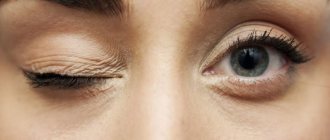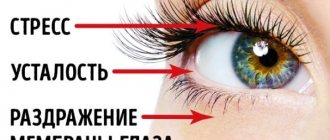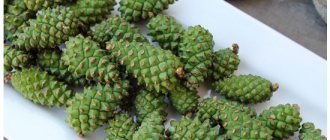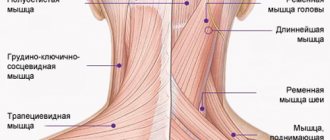Essential oils for fatigue
Oils from various plants, both deciduous and woody, can be used as a sedative. When choosing an extract, you need to pay special attention to the smell, because the state of our nervous system depends on it. The aroma should be light, pleasant, soft and soothing. It should not be too sweet, heavy or simply unpleasant - such a smell will cause a severe headache (and in some cases, nausea).
Psychologist and trainer at the Yulia Sviyash Center, Yulia Terekhova, explains the influence of odors on our body this way: “In the process of processing odors, several parts of the brain are activated at once, including those responsible for the formation of emotions and associative thinking.”
Table: Most Commonly Used Extracts for Stress
| Essential oil | External description | Compound | Calming effect |
| mint | yellowish or light green liquid with a fresh, pungent aroma | carvacrol, menthol, pinene, terpinene, menthyl acetate, cineole, phellandrene, limonene, thymol, neomenthol | calms the nervous system, despite the rather pungent odor, improves blood circulation, increases concentration and improves mood |
| lemon balm | pale yellow liquid with a slight inexpressive lemon odor | citronellal, geraniol, citronellol, rosmarinic, caffeic, chlorogenic acids | improves mood, calms, improves concentration, tones |
| pine trees | absolutely clear liquid with a deep pine aroma | borneol, dipentene, camphene, phellandrene, terpinyl acetate, terpene hydrocarbons | gives confidence, improves mood, encourages, tones, calms, suppresses negative emotions |
| neroli | pale yellow liquid with a tart aroma of sunflower and wood at the same time | limonene, nerol, geraniol, farnesol, alpha-terpineol, acetic, funylacetic, benzoic acids | improves mood, normalizes blood circulation and sleep, relaxes |
| daisies | yellow liquid with a persistent herbaceous aroma | sesquiterpene lactone, bisabolol oxide, chamazulene, cadinenes, caprylic and nonylic acids | relaxes, relieves agitation and irritation, normalizes sleep |
| lavender | colorless liquid with a pleasant mild aroma | geraniol, lavandiol, acetic, caproic, valeric and butyric acids | calms the nervous system, improves blood circulation, causes drowsiness |
| bergamot | yellow-green liquid with a fresh aroma of bergamot | limonene, nerol, terpineol, citral, pinene, bergapten, caryophyllene | calms and improves mood, relaxes and restores strength |
| sage | almost colorless liquid with a fresh cooling aroma | salfin, camphor, alkaloids, flavonoids, tannins, terpenes | relieves tension, eliminates depression, improves concentration and mood |
| ylang-ylang | liquid of a barely noticeable yellow tint with a rich sweet odor | geraniol, cariphyllene, benzyl acetate, phenols, salicylic, formic, valeric acids | restores strength, improves performance, restores sleep and calms; must be used with bergamot or lemon oil - too sweet on its own |
| sandalwood | viscous liquid with a pleasant woody aroma | Santalol, pinene, terasanthalic acid | improves sleep, stimulates creativity, calms and increases performance |
| juniper | yellow or greenish liquid with a characteristic odor reminiscent of turpentine | tannins, camphene, terpineol, acetic, formic, malic acids | calms, gives strength, normalizes sleep, increases concentration, strengthens and tones the nervous system |
| rosemary | colorless liquid (may have a barely noticeable yellowish tint) with a bitter, warm aroma | pinenes, camphene, borneol, cineole, camphor, bornyl acetate, limonene | stimulates brain function, calms, tones |
| orange | yellowish liquid with a citrus odor | ethyl, amyl, phenylethyl alcohols, vitamins A, C, group B, phytoncides | improves emotional state, restores sleep, tones |
| incense | colorless liquid (may have a greenish or yellowish tint) with a delicate camphor aroma | pinenes, bornyl acetate, verbenol, limonene, myrcene, cymene, incesol, bosvyllic acid | restores strength, relaxes, calms, normalizes sleep |
| basilica | clear liquid with a yellowish tint, aroma of anise and camphor at the same time | camphor, cineole, ascorbic and nicotinic acids, bioflavonoids, riboflavin, eugenol | tones, improves memory, concentration |
| roses | dense colorless liquid with a sweet floral odor | citronellol, stearoptene, geraniol, nerol, myrcene | increases performance, relieves fatigue, stimulates creative development, invigorates |
| cypress | yellow liquid with a characteristic pine odor | pinene, sabinol, camphene, cymene, terpene, terpineol | calms, balances, blocks emotional outbursts, enhances concentration |
| anise | clear, slightly yellowish liquid with a sweet, warm, spicy aroma | anethole, methylchavicol, camphene, acetaldehyde, estrogen | calms, relaxes, may make you want to sleep |
| fir | colorless or yellowish-green viscous liquid with a resinous pine aroma | tannins, carotene, ascorbic acid, tocopherols | relaxes, calms, improves mood, tones, increases concentration |
| coriander | colorless, sometimes yellowish liquid with a bright spicy-woody aroma | borneol, phellandrene, dipentene, pinene, terpinene, cineole | improves mood, calms, restores, improves concentration, promotes creative potential |
Photo gallery: most commonly used oils
Chamomile oil has a characteristic herbaceous aroma
Melissa oil is considered the leader in the number of counterfeits
Anise oil has a large number of fakes
Orange is rightfully considered the fruit of the gods and the Sun.
Bergamot has a characteristic, incomparable scent
Cypress oil has a pleasant pine scent
Lavender has a pleasant soft aroma that is difficult to describe, but impossible to forget.
Peppermint oil is considered one of the most popular esters in the fight against fatigue
Neroli oil combines the aromas of wood and sunflower
Fir oil has a pleasant resinous aroma
Rosemary has a bitter smell
Rose oil has an unforgettable floral aroma
The aroma of sandalwood is difficult to confuse with any other
Many people associate the smell of pine oil with the New Year and this already lifts the mood
Precautions and contraindications
Essential oils should only be used by people who are allergic to the plant from which the essential oil is derived. Those who are easily excitable need to use this remedy very carefully, since you can “overdo it” and, having recharged yourself with energy and lifted your spirits, become even more excited. Young children (under 5 years of age) and pregnant and breastfeeding women should consult a doctor first.
Essential oils are safe for humans if used correctly
When using essential oils, the following rules must be observed:
- Do not take ether orally, as if you have a cold;
- when applying the extract to the skin, you must use base oils (15 ml of base and 5-7 drops of ether);
- when mixing oils, the composition should retain a soft, light, unobtrusive aroma;
- use only natural oils - there are a lot of fakes on the market, especially lemon balm ether;
Some essential oils act like a drug (for example, coriander extract), so you need to use them very carefully and monitor your emotional and mental state at all times.
How to use essential oils correctly?
There are several simple, yet effective ways to use essential oils for relaxation. You can try them all to see which one works best.
1) Inhalation is the easiest way to use essential oils
There's no easier way to calm yourself with an essential oil than by smelling it. Feeling irritated? Open the bottle of fragrant oil and take a few deep breaths. You should feel better immediately.
But, you must admit, this method is somehow too primitive. It is much better to use an aroma lamp for inhalation.
Use step-by-step instructions to do everything right.
| Steps, photo | Description |
| Step 1. Refill the aroma lamp | Pour some water into the aroma lamp container. Add 5 drops of the selected essential oil to the water or a mixture of different oils in the same amount. |
| Step 2. Light the candle | Place a tablet candle in the recess under the reservoir with aromatic liquid. Light it up. |
| Step 3. Relax | Now take a more comfortable position and try to relax as much as possible. The lamp should be placed as close as possible to your resting area so that you can inhale the soothing aromas. |
If you can, you can even take a nap, but not longer than half an hour. It is important to extinguish the candle before the fragrant liquid in the tank evaporates completely.
10 Ways to Use Sage Essential Oil on Your Face
The relaxation effect of essential oil will be enhanced if you turn off the lights or close the curtains/blinds and turn on some relaxation music. It may not even be music, but, for example, the sounds of nature.
This video talks about not living in stress. This is harmful to health. An aromatherapist and psychologist also tells you which essential oils to use to calm down and overcome insomnia.
Recipes based on soothing essential oils
The method of treatment and the remedy used directly depends on the degree of nervous tension - you cannot use the same means to combat simple emotional overexcitement and prolonged apathy.
To improve sleep
Every person, even small children, has experienced insomnia; it can manifest itself in different ways: you cannot fall asleep for a long time or, conversely, you fall asleep very quickly, but wake up at night and then cannot fall asleep again for a long time. The result is that a person does not get enough sleep and does not recover. In an adult, the causes of sleep disturbance are stress and nervous tension; in a child, it is a rich imagination and something bad seen or heard that frightens and prevents sleep.
Your mood for the next day depends on the quality of your sleep.
Massage
Therapeutic massage circulates blood well throughout the body, warms, relaxes and soothes; the use of essential oils will enhance this effect. But ethers in their pure form cannot be applied to the skin - they may cause burns; you need to make a mixture of base oil (coconut, flaxseed and others) and essential oils - 5-7 drops of extract per 15 ml of base. The thoroughly mixed composition is applied to the already warmed body, after which the massage can be continued.
For massage it is recommended to use the following mixtures:
- jasmine (2 drops), incense (6), lemon (6);
- lavender (4), lemon balm (1), chamomile (3);
- rose (2), ylang-ylang (2), lavender (2);
Massage with essential oil quickly warms and relaxes
Relaxing bath
Water has a calming effect on a person, so taking a bath is recommended to relieve stress and tension after a working day, and the use of various essential oils during the procedure speeds up this process. It is best to take a relaxing bath just before bed so that the nervous system does not have time to get excited again - this is especially true for children who are emotionally unstable.
You need to add 7-10 drops of essential oil to a warm or hot bath (whichever you prefer). The following extracts relax most quickly:
- lavender;
- vanilla;
- Melissa;
- mint;
- bergamot;
- juniper;
- rose;
- cypress;
- orange;
- chamomile;
Nothing soothes you like an aromatic bath
Bedroom scenting
The quality of sleep is affected by the smells in the bedroom, which is why aromatherapy is a good cure for insomnia. However, it is impossible to carry out the procedure immediately before falling asleep - the concentration of essential vapors will be very high, which can do more harm than good.
An hour before bedtime, ventilate the room, then place the aroma lamp in the bedroom for 15–20 minutes - no more. During the remaining time, the vapors will be evenly distributed throughout the room and will have only a positive effect on the body, without causing headaches and nausea.
To aromatize rooms, it is better to use one oil, because the wrong combination of esters and odors can lead to unpleasant sensations. The most commonly used oils are:
- juniper;
- cypress;
- myrrh;
- cedar;
- fir;
- orange/tangerine;
- neroli;
- lavender;
- incense;
- chamomile;
Video: essential oils for good sleep
To calm the nervous system and for chronic fatigue
An emotionally unstable person reacts very painfully to various situations, especially stressful ones, and gets excited even in cases where the events hardly concern him. This has a detrimental effect not only on the nervous system, but also on the entire body as a whole. It can be very difficult to control emotions on your own, especially for children and women, so it is recommended to use essential oils to stay calm all the time - it is both safe and very effective.
Aromatherapy
If emotions are overwhelming all the time, it is difficult to learn to cope with them, calming down only once a day. It is necessary that the source of a relaxing aroma be nearby all the time, so that the smells do not irritate, but calm. It is best to use aromatic pendants or bracelets - you can always wear them, their beautiful shapes allow you to combine them with different styles of clothing.
Aromatic pendants can be very cute, so they will be a good addition to almost any look.
For aroma pendants and bracelets, it is best to use ethers:
- vanilla;
- roses;
- chamomile;
- lavender;
- orange;
- juniper;
- mint;
Using aroma lamps before bed will also have a positive effect on your emotional state.
Compresses
Compresses, like massage, warm up the body well, so they should be applied before bed. Take warm water (38–40 degrees), add a few drops of essential oil to it, dip a cotton cloth in it, place it on your forehead or chest, first taking a horizontal position. Cover the top with polyethylene so that the heat does not escape outside, and with a towel. Wrap yourself in a blanket and lie there for 15–20 minutes, then remove the compress and go to sleep.
If you put a compress on your head, make sure that the water with esters does not get into your eyes or ears.
The following compositions can be used for compresses:
- lemongrass (3 drops), ylang-ylang (3);
- benzoin (2), cloves (2), cumin (2);
- jasmine (2), rose (2), incense (5);
I use the oil mainly in the aroma lamp. Excellent for helping with incipient colds and headaches. Makes the air in the room pleasant and fresh. Helps relieve nervous tension. My back gets stiff after a day of work. I use oil for massage. A couple of drops, my husband drips into the massage oil and massages my back. The oil has a pleasant cooling effect and helps relieve fatigue. I really like the effect.
———-Alina———-
https://irecommend.ru/content/maslo-myaty-i-moi-prostye-i-effektivnye-sposoby-primeneniya
For stress, I add a couple drops of orange, lemon, patchouli, ylang-ylang or vanilla. Ginger and grapefruit, frankincense and sage, sandalwood and rosemary are good for fatigue. For anxiety, jasmine and lavender, patchouli, rosewood.
Snezhana
https://www.divomix.com/forum/efirnye-masla-dlya-bodrosti-po-utram/#comments-template
For depression
Depression is a mental disorder, not just temporary fatigue. This disease should be treated only with medication, and essential oils can only speed up this process, gradually returning a good mood.
Aromatic bath
Being depressed, a person may not respond to the smells around him, and the feeling of peace and relaxation that water gives is much stronger. It is best to use oils to aromatize your bath:
- lavender;
- bergamot;
- orange, tangerine, lemon;
- roses;
- jasmine;
- basilica;
- mint;
Depression is largely characterized by a depressed state - it is this symptom that an aromatic bath reduces
If you are depressed, it is not advisable to use other scents, since they are, as they say, “not for everybody” - they can make things worse.
Compresses
Unlike all other procedures with essential oils, compresses have one big advantage - after them you definitely need to stay in bed, and even sleep. This is exactly what will help you cope with depression faster - pleasant aromas, a completely relaxed body, normally circulating blood and good sleep.
For compresses it is also better to use citrus scents, oils of lavender, jasmine, basil, rose and bergamot; You shouldn’t experiment with depression—the condition can only get worse.
Video: essential oils for depression
Calming Essential Oils: How Do They Work?
The easiest way to calm down is to take a tablet or drops. But who wants to poison their body with medications once again, especially if stress overcomes them with enviable regularity? That's right - no one! Then folk methods come into play.
My colleague, who knows how to maintain Olympic calm even in the most difficult situations, shared her recipe: a mixture of essential oils.
There is always an aroma lamp in her office, and when her nerves begin to get crazy, she simply lights a candle under a container of ethers. Claims that he calms down almost instantly.
PS. You can and should fight stress at work, including with the help of aromatic oils
Essential oils can really do a lot:
- Ease symptoms of depression.
- Allows you to calm down faster after nervous stress.
- Block unpleasant emotions.
- Eliminate sleep problems.
- I improve my mood.
- Increases the ability to work and perceive new information.
- Reduce the manifestation of acute psycho-emotional states such as fear, panic attack, shock, etc.
People have been healing with essential oils since ancient times. Gradually they conquered Europe.
Despite the fact that the pharmaceutical industry is developing by leaps and bounds, aromatherapy has many fans and their number is only increasing every year.
Aroma oils, unlike medications, act gently on the body without causing unpleasant symptoms or addiction.
But, alas, in addition to a number of advantages, they also have some disadvantages.
| Advantages | Flaws |
| Reasonable cost compared to pharmaceutical drugs. | Aromatherapy is not for everyone - there are people who cannot calm down with the help of essential oils. |
| Safety for the human body - you don’t have to poison yourself with chemicals. | Essential oils do not help cope with nerves in the long term and certainly do not eliminate the cause of nervous exhaustion. |
| This is a very pleasant way to calm down and relieve stress. | Aromatherapy is an unscientific method rejected by doctors. |
Rules for using essential oils
Essential oils can be considered as medicine, albeit related to traditional medicine; they can both help and harm, so it is necessary to follow the rules for storing and using ethers:
- The oil must be fresh. Esters can be stored for up to 5 years from the date of manufacture, but they are most useful for the first two years, after which their structure changes, some properties are lost, and bitterness and rancidity appear.
- Esters should be stored in a dark place so that they are not exposed to sunlight - it changes the structure of the oil, and not for the better.
- Plant extracts should not come into contact with the skin and especially the mucous membranes . If the procedure involves applying ether to the body, it is necessary to dilute it in any base oil.
- Do not bring an open container with essential oil close to your nose or eyes - the vapors from the extract can burn the mucous membranes.
- Do not perform aromatherapy in the bedroom immediately before bed - a high concentration of vapors can cause headaches, sleep will become difficult, and the body will not rest. At least half an hour before bedtime, the aroma lamp should be extinguished and removed from the room.
Recipe 3. With red tangerine
The main component of red mandarin essential oil is limonene, which provides its citrus aroma and stimulating effect. In addition, tangerine oil contains methyl anthranilate, which creates a mood of sparkling, carefree joy. Tangerine essential oil is useful for relieving spasms of various natures, it increases vitality and activates digestion. It is considered an excellent aroma for a child's room, as it improves sleep and appetite, eliminates fears and hyperexcitability, and encourages the child to be curious and cooperate with parents or teachers.
[:product:prim0012:]
In adults, red tangerine essential oil is useful for depressive mood, burnout syndrome, irritability, and during periods of crisis. During times of ill health, it strengthens the immune system and overall tone, speeds up the healing process, and makes visiting a doctor and staying in the hospital easier. Excellent partners for this oil are all pine aromas.
Quick relief from anxiety
- 20 ml base (fat) oil
- 4 drops of red mandarin essential oil bio Primavera
- 4 drops bio Primavera lavender essential oil
- 2 drops Boswellia Primavera essential oil
For general or local massage before a medical examination, for anxiety and panic. Apply, massaging, on both sides of the spine, and also gently rub into the earlobes.
Relieving mental stress
- 50 ml base oil
- 7 drops bio Primavera mint essential oil
- 7 drops bio Primavera lavender essential oil
Mix and use for head and neck massage.
Combining essential oils
By combining esters, you can achieve greater results, since each plant has a limited number of beneficial properties, which are subsequently transferred to the extracts. These qualities are associated not only with restoring the normal functioning of the nervous system, but also with the functioning of other organs of the body, so the use of essential oils allows you to heal many systems in one procedure.
Oils can be combined, but be careful
Oils can be combined in a wide variety of proportions, adding those esters that are not sedatives, but there are a number of rules that will help when creating a mixture of extracts:
- the overall aroma should be light and pleasant; it doesn’t matter whether it’s warm or refreshing, sweet or bitter - the main thing is that it’s pleasant to you; if the smell is heavy, you will get headaches and nausea;
- It is not recommended to mix “warm” with “cold”, i.e. sweet and refreshing aromas, since it is not known how the nervous system will react to such a composition;
- to calm down, it is better to use frosty soft aromas, so if you decide to use sweet, bitter or, even more so, cloying esters, they must be diluted with lemon oil;
A mixture of essential oils for calming can be created according to the “pyramid” rule for perfumes: the main ether (the main calming aroma) - 3 parts, the second note (heard for the first 15-60 minutes) - 2 parts and a refreshing sketch that quickly puts you in a state of calm, - 1 part.
The Best Essential Oils for Sleep
Aroma oils not only smell pleasant, but also have a scientifically proven effect on the psycho-emotional sphere:
- reduce anxiety levels;
- smooth out manifestations of nervousness, anxiety, irritability;
- relax the nervous system;
- normalize heart rate and blood pressure;
- restore emotional balance and set the mood for positivity.
The best anti-stress, calming and restorative aromatic oils have proven themselves to be lavender, chamomile, cedar, vetiver, lemon balm, ylang-ylang, and bergamot.
Useful tips
- If this is your first time working with ethers, use them pure, i.e. do not add other extracts to them - first you need to learn to feel your reaction to them.
- Essential oils can and should be combined - this improves their qualities and their effect on the human body as a whole; but this must be done after already having experience of “communicating” with the ethers.
If you already know what smells are pleasant to you, what esters can be mixed to make the scent soft and soothing for you personally, only then mix them
- Don’t wait until there is an urgent need to calm down - several procedures a week will help you in any situation, and the nervous system will not be “on edge”.
- Keep a diary of your emotional well-being. Using it, you will be able to determine which aromas calm you down faster, and which ones you do not react to at all - this will help when combining oils. You will also be able, by looking at yourself from the outside, to adequately assess your condition, which is very important, since some oils are addictive.
Traditional medicine has been used for centuries and very successfully, but do not forget that it is powerless for chronic fatigue, depression, and apathy. Essential oils can temporarily lift your mood and give you strength, but this will not completely solve the problem; and if you carry out procedures every day for a very long time, you will simply get used to it, and the result will no longer be as such. Use ethers as an additional treatment, and the main treatment should, of course, be medication prescribed by a doctor. If you have a short-term nervous disorder, you are in a stressful situation, but it will pass quickly, then use plant extracts as the main medicine to support the nervous system in difficult times.
- Author: woman
Rate this article:
- 5
- 4
- 3
- 2
- 1
(2 votes, average: 5 out of 5)
Share with your friends!
Sedatives
Soothing essential oils
Essential oils that calm the nervous system help relieve irritation, nervousness, and increased emotional excitability. For children, as well as the elderly, such products are absolutely harmless, unless there is an allergy or individual intolerance to a specific aroma. So, the best in this regard were the following essential oils prepared on the basis of:
- lavender;
- cedar;
- geraniums;
- bergamot;
- chamomile;
- cypress;
- tangerine;
- patchouli;
- valerian;
- sage;
- lemon balm;
- eucalyptus;
- mint;
- thyme;
- neroli;
- lemon;
- basilica;
- palmarosa;
- vetiver;
- jasmine;
- grapefruit;
- ylang-ylang;
- incense
The main part of these products can be combined to obtain new perfectly seductive aromas that have a stimulating, calming, and sedative effect on the body. Take baths with them, wash in a sauna, perform inhalations, apply compresses, do massage based on them, even add them to food and drink.
Kedrovoe
Cedar essential oil
Aromatherapy specialists recommend using cedar essential oil most often for children. It is considered the most suitable for hyperactivity. By acting on the brain, the substance stimulates the production of substances that help normalize sleep. It is recommended to rub into the back of the head and use for inhalation. Cedar aromas will find an ideal combination with juniper, frankincense, eucalyptus, cypress, rosemary, sage, myrrh oils.
Chamomile oil
Chamomile essential oil
Essential oils that calm the nervous system, made from chamomile, can ensure peace of mind and sanity. Suitable for both inhalation and external use. The properties of the product can be enhanced by adding oils of spruce, mint, marjoram, sandalwood, lavender, lemongrass, geranium, hyssop, and immortelle.
Lavender
Lavender essential oil
Experts advise using lavender-based essential oils for nerves as an antidepressant. Not only does anxiety and insomnia go away, but after lavender therapy you can normalize surges in blood pressure, eliminate increased heart rate, and cure migraines. Surprisingly, the lavender scent finds an ideal combination with any analogue, made on any basis.
Frankincense oil
Frankincense oil
The scent of incense can calm the nervous system, get rid of depressing thoughts and depression. With the first breaths of aromas, essential oil to calm the nerves begins to have a beneficial effect. The feeling of chronic fatigue disappears, a surge of vital energy and a desire to “create” are felt. Anxiety, fear for loved ones, and one’s own actions pass. Nostalgia no longer torments, there is a desire to change everything without thinking about the bad. The effect is magnificent, this was noticed in ancient times, using incense-based oils during prayers and meditations.
Additional components to restore complete harmony can be myrrh oil, lavender, sandalwood, bergamot, lemon, pine, orange. Can be applied to the body or used to scent rooms.
Geranium
Geranium oil
Soothing essential oils made from geranium can help relieve tension, internal confusion, and anxiety. Aromas allow you to quickly recover from stress and fear. After such aromatherapy, the patient is self-confident, optimistic, filled with inspiration and the desire to do good deeds. The substance is combined with rose, bergamot, sage, patchouli, lavender.
Patchouli
Patchouli oil
The main property of patchouli essential oil is to calm the nervous system, eliminate depression, elevate your mood and the desire to admire beauty. A person seems to be in euphoria, begins to dream of incredible deeds, feeling the strength to come up with ideas. Intuition and self-confidence increase. Lethargy, weakness, drowsiness disappear without a trace. Frequent use and high dosages have a calming effect, completely suppressing nervousness, irritation, and anxiety.
Essential oils: let's get to know each other better
Essential oils are nothing more than extracts obtained from plants. They have very beneficial properties: they help relax and awaken energy, rejuvenate the skin and nourish it with luxurious aromas. They have long been used in cosmetic procedures and body care. And, of course, essential oils are more valuable substances in contrast to artificially created vegetable or perfume oils. This is the ideal choice for a true connoisseur of quality cosmetic products and relaxers.
Aromatherapy methods
What is the best way to use essential oils for stress? There are several methods of aromatherapy to relax and calm the nervous system. You can choose one or combine different options.
Oil burner
There are various ceramic aroma lamps on sale. They are very simple to use: water is poured into a special small bowl and a candle is placed under it. You need to drop a little essential oil into the water and light a candle. When heated, the water, with the ether diluted with it, begins to evaporate, spreading a pleasant aroma throughout the room. It should be noted that one medium-sized aroma lamp is only enough for one small room. To scent the entire apartment with oils, lamps are placed in each room.
The evaporation of ether purifies the air, fills the space with a pleasant smell, expels negative energy from the room and heals the body.
Baths with essential oils
This procedure has not only an anti-stress effect, but also a cosmetic effect. Before taking the aroma lamp, you need to thoroughly cleanse your body in the shower. Then the bath is filled with warm water (within 36-38 degrees) and 15-20 drops of the selected oil are added to it. You should lie in such a bath for 15-25 minutes, after which you should not use any detergents.
The aroma bath perfectly relaxes after a hard day, gives peace, and helps you fall asleep quickly.
Aroma pendant
For those who want to enjoy a pleasant aroma throughout the day, there are special pendants made of ceramic, metal or glass. They are made in the form of small vessels into which essential oil is dripped. The pendant is worn around the neck and exudes a healing aroma for a long time. It is best to buy ceramic aroma pendants; this material retains the smell longer.
However, do not forget that inhaling essential oils for too long can also have negative effects: cause headaches, nausea, allergies. It is recommended to wear such a pendant for 1-3 hours, after which you can take a break and put it on again for a couple of hours.
In addition, anti-stress essential oils can be rubbed into the skin, massaged with them added to the main oil, or dripped onto surrounding objects. It is worth noting that real essential oil does not leave a greasy residue and completely evaporates from any surface. Relaxing esters are recommended to be dripped onto the pillow (no more than 2 drops), or applied to the temple area before bed. Before applying oil to your skin, make sure that it will not cause irritation or allergies. Essential oils should not be applied to mucous membranes. Each essential oil, in addition to its beneficial properties, also has contraindications. Be sure to read them before use.
If you find an error, please select a piece of text and press Ctrl+Enter. Thank you for your attentiveness and help!
Rules of aromatherapy
Aromatherapy will give maximum effect for neuroses and depression, if you choose the right oils and use them.
- Oils of incense, basil, neroli, ylang-ylang, fir, and chamomile have a relaxing effect. They relieve restlessness and anxiety, are effective for nervous disorders, emotional stress, and will help you relax and meditate.
- Oils of orange, vanilla, mint, juniper, verbena, and sandalwood have a tonic effect. They lift your spirits, relieve psychosis, fear, and obsessive thoughts.
- Despondency, melancholy, and depression are driven away by citrus oils, esters of jasmine, chamomile, sandalwood, bergamot, geranium, and neroli. Rose, violet, vetiver, and tea tree oil will help you cope with obsessive fears and nervous disorders.
- Migraines, anxiety, obsessive phobias will be driven away by essential oils of basil, orange, lime; volatile compounds of rosewood, juniper, lavender, cypress oil, patchouli, rosewood, and marjoram will cope with insomnia and irritability.
- Esters of mint, eucalyptus, ginger, thyme, rosemary, and basil are effective against apathy and improve brain activity. If you suffer from nervous excitability or feel constant tension, use rose, patchouli, lavender, sandalwood, as well as cedar, geranium and jasmine. The esters of lemon, basil, sage, and thyme will strengthen and calm nerve cells.
- Deep relaxation and general calm will be provided by essential oils of ylang-ylang, lemon balm, petitgrain, valerian, sage, frankincense, juniper. The same effect will have the esters of marjoram, bergamot, chamomile, vetiver, neroli, and geranium.
Aromatherapy for depression will be most effective if complex changes occur. Changing your diet and saturating yourself with foods rich in iron, vitamin C, minerals, and trace elements will help with this. Ensure daily healthy sleep, drink more green tea, herbal infusions, less coffee, and other pathogens.
If you are constantly experiencing depression and stress and have a significant impact on your health, seek help from a specialist: a psychotherapist, a psychoanalyst. An integrated approach together with the use of aromatherapy will help to quickly cope with the problem.











